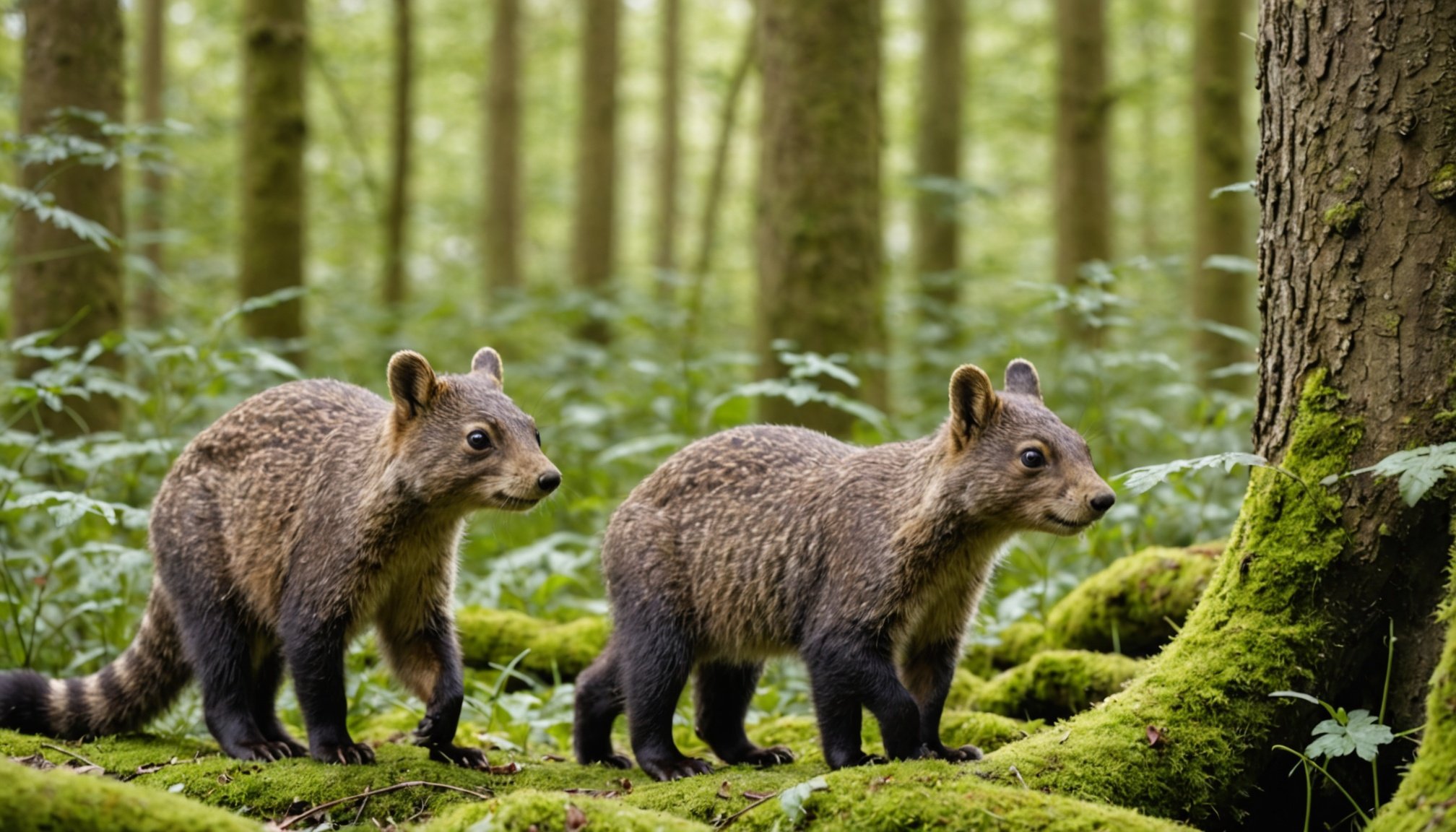Overview of Interactive Wildlife Experiences in the UK
The interactive wildlife experiences offered in the UK are providing an invaluable means of education, especially for students. These experiences go a long way in nurturing an understanding of conservation. One key benefit of engaging in UK wildlife education is the hands-on learning approach, where children actively participate in their learning process. By interacting directly with nature, students are encouraged to develop a deeper connection and understanding of the wild ecosystems.
Several popular wildlife experiences are tailored specifically for schools. From school wildlife programs that introduce young learners to native species, to more elaborate camps that promote conservation, the choices are abundant. Institutions often offer guided tours through natural reserves, ensuring students gain firsthand experience of UK’s diverse flora and fauna.
Also read : Top fish varieties for uk ponds: boost your local ecosystem with these ideal selections
The benefit of outdoor education extends beyond academic knowledge. It plays a significant role in promoting conservation awareness amongst the younger generation. By getting involved directly with nature, students often gain a sense of responsibility towards preserving it. This form of education is crucial for there might be interactive wildlife scaling beyond the classroom’s confines. As a result, it enlightens not just the mind but inspires budding conservationists for the future.
Key Interactive Wildlife Programs
The UK’s wildlife programs for schools offer diverse learning opportunities, aiming to foster a connection between students and nature. Here’s a glimpse into some standout programs:
Also read : Guardians of the sea: the uk”s innovative efforts to safeguard seabirds from plastic pollution
Wildlife and Conservation Workshops
These educational workshops focus on instilling conservation ethics through interactive activities. Typically designed for various age groups, the workshops aim to educate about local ecosystems, endangered species, and conservation techniques. Their mission is to engender a sense of responsibility and understanding towards preserving biodiversity.
Guided Nature Tours
Guided tours present a unique chance to witness wildlife in their natural habitats. Suitable for all ages, these tours enhance observational skills and convey the importance of ecosystems. They often involve walking through nature trails guided by experts who interpret behaviours and habitats—bringing the curriculum to life.
Mobile Wildlife Education Units
For schools unable to travel, mobile wildlife units bring learning directly to students. Featuring live animal encounters or interactive exhibits, these units are adaptable and cater to specific educational objectives. The immersive experience is designed to prompt curiosity and engagement with wildlife topics.
These programs generally operate on a booking system, with prior scheduling ensuring tailored educational outcomes. Passionate instructors are on hand to customize experiences according to school needs.
Educational Benefits of Wildlife Experiences
UK’s interactive wildlife experiences are instrumental in meeting learning outcomes across various educational standards. These programs seamlessly align with the national curriculum, enhancing subjects like science and geography through real-world applications. Wildlife experiences enrich education by offering practical applications of theoretical knowledge, enhancing comprehension and retention rates.
Through these experiences, students develop a variety of skills essential for holistic development. Critical thinking is honed as participants analyze and interpret ecological data. Collaboration and teamwork are encouraged through group activities, fostering social skills. Engaging directly with nature boosts observational abilities, enhancing both scientific understanding and environmental awareness.
Educators frequently provide glowing testimonials about these programs’ effectiveness. Teachers often note enhanced student engagement and enthusiasm as learners partake in lessons brought to life in natural surroundings. A common observation is the long-lasting impact these experiences have on students, instilling a lifelong passion for learning and conservation.
Schools have reported that these immersive experiences provide students with insights that textbooks alone cannot deliver. By linking classroom material to these wildlife programs, students gain a deeper, more profound understanding, positioning them well for future academic pursuits or careers in environmental fields.
Accessibility and Pricing Information
Understanding the financial and logistical aspects of interactive wildlife experiences is crucial for accessible participation. Schools often benefit from tailored program costs designed to accommodate varying budgets. Pricing structures are usually transparent, considering the specific needs and durations of visits, making these enriching opportunities more attainable for educational institutions.
When booking, schools can explore discounts for schools, which many wildlife programs offer as part of their educational commitment. These discounts can significantly reduce expenses, especially for larger groups, thereby encouraging more schools to engage with the rich UK wildlife education. Additionally, certain programs might offer funding opportunities, assisting schools in further reducing costs and supporting participation for a broader range of students.
Accessibility is also addressed through comprehensive accessibility options and support features. Programs frequently include amenities like wheelchair access, sensory-friendly environments, and various assistance options to ensure inclusivity. Providers are committed to enabling all students, regardless of physical or sensory abilities, to experience the educational benefits of these programs fully.
Ensuring programs are budget-friendly and inclusive is vital for fostering widespread engagement with nature, particularly for schools aiming to integrate wildlife education into their curriculums efficiently.
Booking Process and Contact Information
To effectively book wildlife experiences and ensure your school can partake in these enriching programs, it’s essential to follow a systematic approach. Here’s a straightforward, step-by-step guide to securing your spot:
-
Research: Start by exploring available wildlife programs that fit your educational objectives. Ensure the chosen experience aligns with your curriculum requirements and group needs.
-
Inquiry: Once a program of interest is identified, initiate contact with the service provider. Providers usually have a dedicated contact point, such as an email or phone number, for inquiries. Be prepared to ask relevant questions about program costs, accessibility options, and discounts for schools to assist in planning.
-
Scheduling: Engage with the provider to discuss dates and confirm availability. Early booking is encouraged, particularly for large groups, to avoid disappointment.
-
Customization: If needed, tailor the experience further based on specific educational goals, which many providers accommodate.
-
Finalize Booking: Ensure all details are confirmed, including date, time, and any special requirements. A confirmation will often be sent to verify the booking details.
Prompt and clear communication with providers will ensure a seamless booking process, allowing educators to focus on the enriching benefits these interactive wildlife experiences offer.











